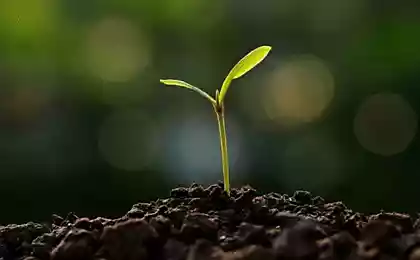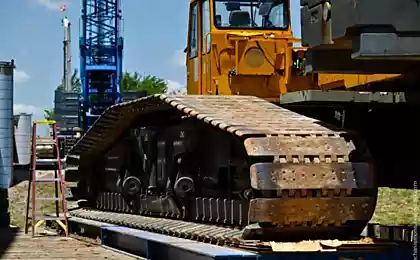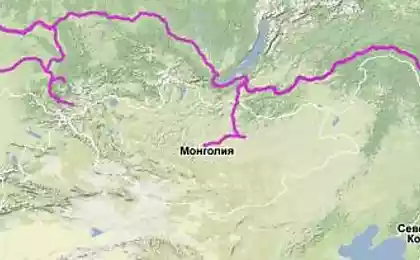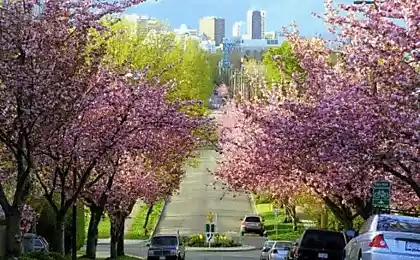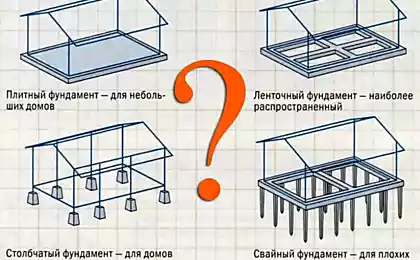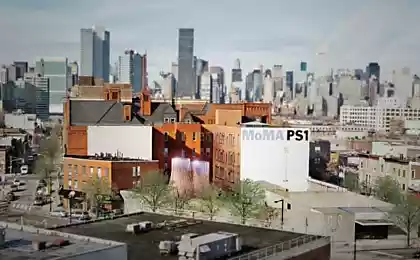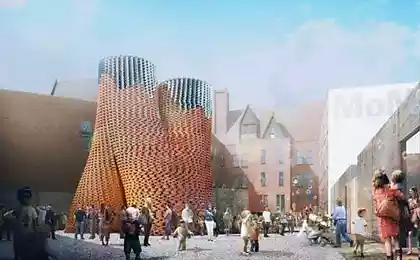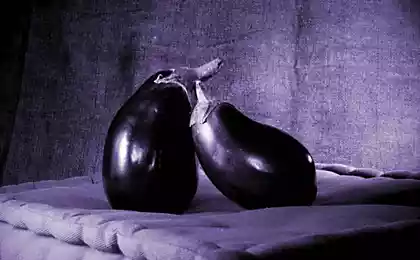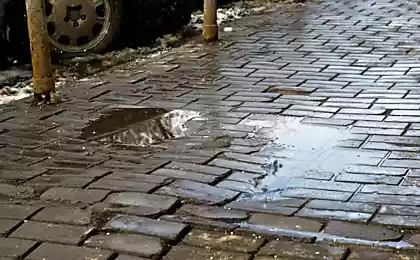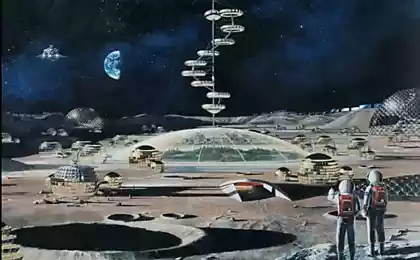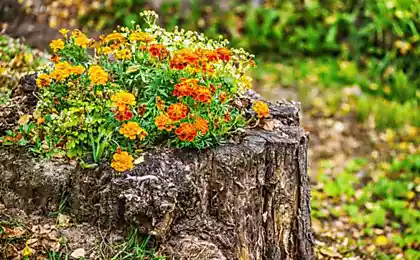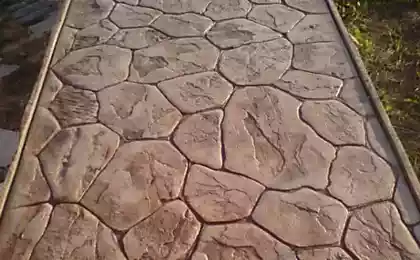554
Eco-friendly concrete
Everything is already created by nature. We can only use hints in the development of high-tech materials.
This went through the developers of permeable concrete that mimic natural soil. Permeable concrete is a highly porous material of glued together particles of concrete. The space then takes 15-25% of the total volume of the material. It turns out this cheese with lots of holes. High porosity provides filtering large volumes of water – up to 200 liters per minute per 1 m2 of the coating. What are the advantages of this technology?
In nature there is a natural water cycle. Rain water gets to the surface, absorbed by the roots of the plants, the excess drains to groundwater. Then the water evaporates through the leaves of plants and from the surface waters, which are fed from groundwater. In cities where the asphalt literally "ate" all the surface rain water through the drainage system is removed outside the city. As a result of natural cycle is broken. The plants suffer from lack of water, and groundwater do not receive the necessary nutrition. Permeable concrete, unlike asphalt infiltrates rain water and allows it free access to the soil. At the same time reduces the load on the drainage system of the city in the rainy season.
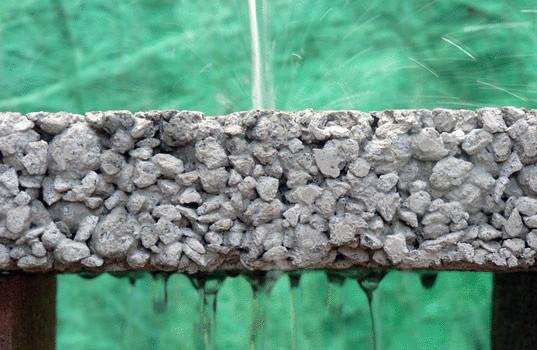
The cost of such coverage significantly below the asphalt. Do not forget that a quarter of the "miracle concrete" is the air. On the other hand asphalt is a petroleum product. In addition to the unstable cost of its production, the asphalt contains many toxic substances that pollute the environment.
Eco-friendly concrete is perfect for use in harsh environments. Due to its porosity unlike asphalt, it is resistant to temperature extremes. This eliminates the need for frequent repair of roads, and in our reality – the annual relaying of the asphalt track. The producers of "miracle concrete" guarantees 15 years of operation in such conditions!
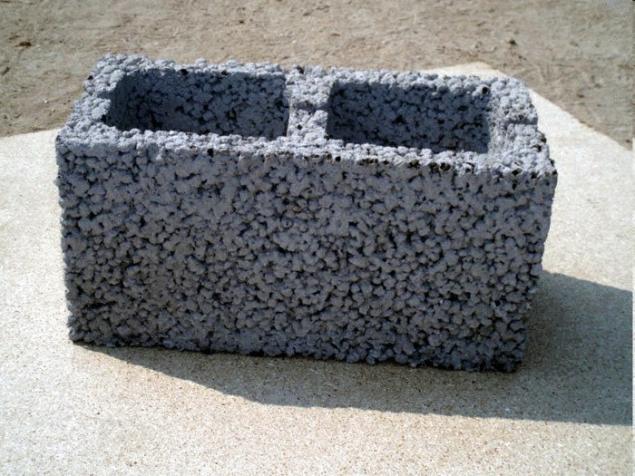
Porous concrete is used in the US and Europe for the construction of sidewalks, Parking lots, roads, surfaces in recreation areas, retaining walls and strengthening of slopes. Manufacturers are confident that over time its scope will be expanded.
The developers of the Portuguese Studio e-studio went even further. They "revived" the concrete, adding seeds of lawn grass. Organic concrete is a unique material which due to its porous structure allows to germinate the seeds directly from the substrate. Even in dry periods, the plants will not experience shortage of water, securely stored in its pores.
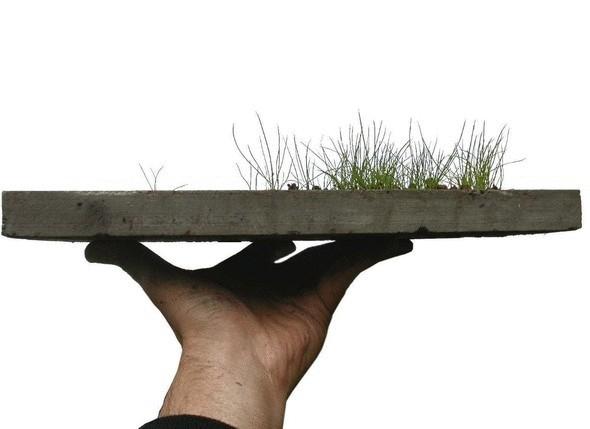
Organic concrete opens new opportunities for architects and landscape designers. In fact, the original "green structures" and life forms limited only by their imagination.
Source: /users/104
This went through the developers of permeable concrete that mimic natural soil. Permeable concrete is a highly porous material of glued together particles of concrete. The space then takes 15-25% of the total volume of the material. It turns out this cheese with lots of holes. High porosity provides filtering large volumes of water – up to 200 liters per minute per 1 m2 of the coating. What are the advantages of this technology?
In nature there is a natural water cycle. Rain water gets to the surface, absorbed by the roots of the plants, the excess drains to groundwater. Then the water evaporates through the leaves of plants and from the surface waters, which are fed from groundwater. In cities where the asphalt literally "ate" all the surface rain water through the drainage system is removed outside the city. As a result of natural cycle is broken. The plants suffer from lack of water, and groundwater do not receive the necessary nutrition. Permeable concrete, unlike asphalt infiltrates rain water and allows it free access to the soil. At the same time reduces the load on the drainage system of the city in the rainy season.

The cost of such coverage significantly below the asphalt. Do not forget that a quarter of the "miracle concrete" is the air. On the other hand asphalt is a petroleum product. In addition to the unstable cost of its production, the asphalt contains many toxic substances that pollute the environment.
Eco-friendly concrete is perfect for use in harsh environments. Due to its porosity unlike asphalt, it is resistant to temperature extremes. This eliminates the need for frequent repair of roads, and in our reality – the annual relaying of the asphalt track. The producers of "miracle concrete" guarantees 15 years of operation in such conditions!

Porous concrete is used in the US and Europe for the construction of sidewalks, Parking lots, roads, surfaces in recreation areas, retaining walls and strengthening of slopes. Manufacturers are confident that over time its scope will be expanded.
The developers of the Portuguese Studio e-studio went even further. They "revived" the concrete, adding seeds of lawn grass. Organic concrete is a unique material which due to its porous structure allows to germinate the seeds directly from the substrate. Even in dry periods, the plants will not experience shortage of water, securely stored in its pores.

Organic concrete opens new opportunities for architects and landscape designers. In fact, the original "green structures" and life forms limited only by their imagination.
Source: /users/104
